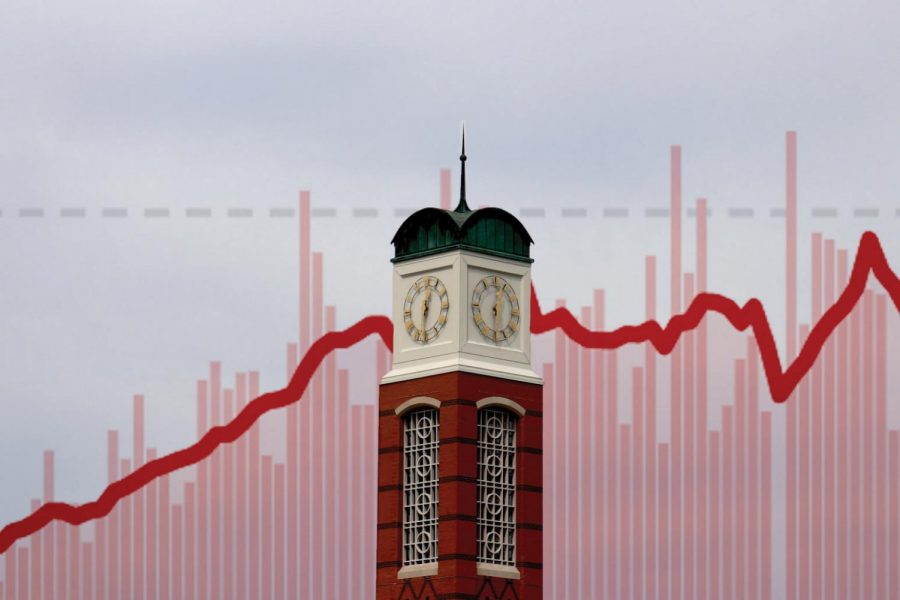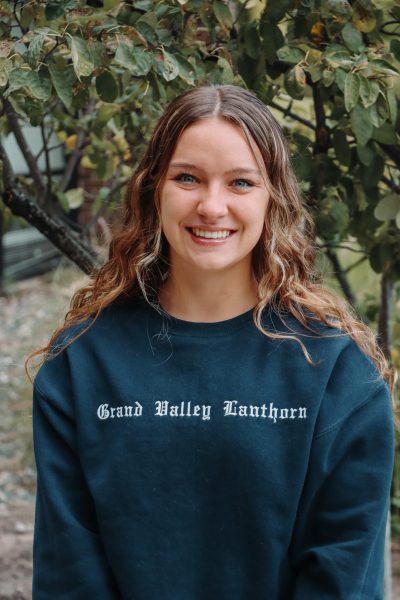GV urges community to stay vigilant as vaccines roll out
Apr 5, 2021
COVID-19 cases have once again begun to rise in the midst of the spring allergy season, where people mistake their COVID-19 symptoms for allergies, leading to a further spread of the virus.
There are many ways to stop the spread of COVID-19 while communities are striving for herd immunity. As recommended by the Centers for Disease Control and Prevention, preventative measures such as getting vaccinated as soon as you are able to, socially distancing and wearing a mask that covers the nose and mouth all aim to stop the spread until vaccine distribution can make a significant impact on public health.
It is also important to identify COVID-19 early on. People should get tested when they have been in crowded settings such as an airport or social gathering as well as self-isolating and getting tested when developing any symptoms.
Tina Barnikow, Senior Director of Health for the Virus Action team at Grand Valley State University, urges people to continue these measures while people get vaccinated
“We understand it has been a very long 13 months, and everyone is looking forward to returning to ‘normal’,” said Barnikow.
On April 5, the COVID-19 vaccination will be available to all individuals 16-years-old and older. One location where people can schedule their appointments is Vaccinate West Michigan. This site allows students to look at multiple vaccination locations and if no appointments are available, register to be notified when there is availability.
Barnikow encourages the campus community to get the sign up for the vaccine as soon as possible.
“To date, the data shows that vaccines are safe and effective at preventing COVID-19, and reducing serious symptoms for those who become infected,” said Barnikow.
The Virus Action Team has seen more people reporting their vaccinations on their COVID-19 self-assessment and about 2,600 members of the GVSU community have been fully vaccinated.
These are important measures to take against the virus and its fast-moving variants, that may cause even more severe symptoms. The most prevalent of these variants is the UK variant (B.1.1.7), commonly found in Michigan and much of the United States.
The GVSU community has confirmed two cases of the B.1.1.7 variant. Through measures to contain this strain, both cases within GVSU were contained in those cases alone and with the people who were considered close contacts.
“Additional testing is required to identify a variant, which takes 2 to 3 weeks,” said Barnikow, “Since not every case can be tested, the health departments believe that variant cases are likely circulating widely throughout west Michigan.”
Many vaccinations have also proved effective against the variants further making it possible to help stop transmission and cases.
As a community both within GVSU and the rest of the State of Michigan, it is important that we do our part to keep ourselves and others safe. For more information on COVID-19 procedures and to hear from the GVSU virus action team go to https://www.gvsu.edu/lakerstogether/virus-action-team-vat-34.htm.

























